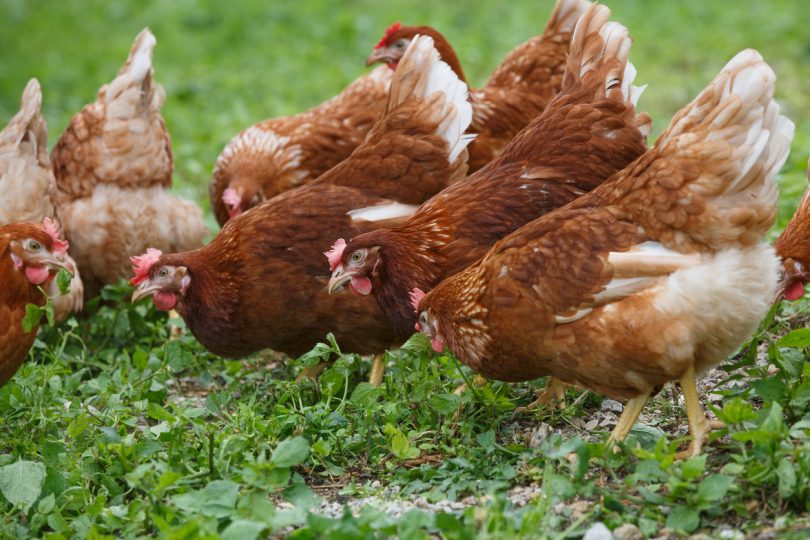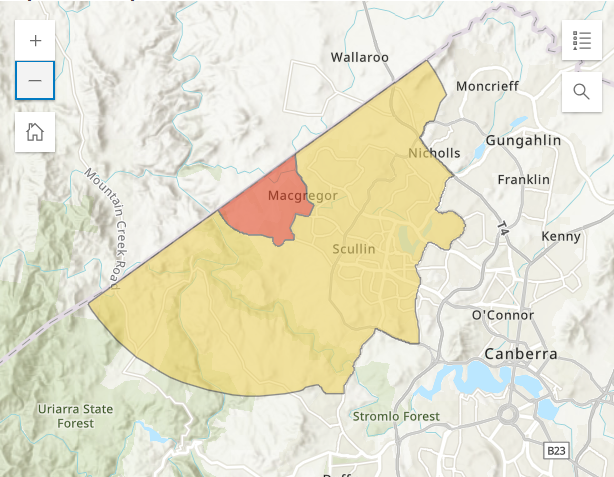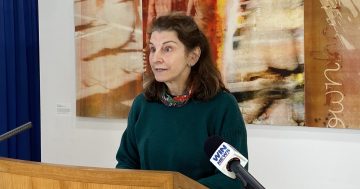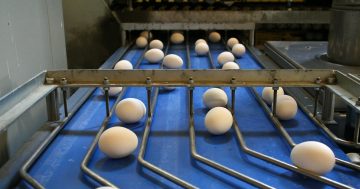
A case of bird flu has been confirmed in a backyard pet in the Belconnen area. Photo: File.
Bird owners in the Belconnen area have been urged to remain vigilant with the confirmation of a bird flu case in backyard chickens.
The detection was made at a home within the established quarantine zone following the initial detection of avian flu strain high pathogenic avian influenza (HPIA) H7N8 at a commercial operator’s farm.
There were three chickens at the home, and while only one tested positive to bird flu, all three have been put down.
Environment Minister Rebecca Vassarotti said while it was disappointing there was a second case, it wasn’t unexpected.
“Like jurisdictions across the country, this is, unfortunately, the reality of such a highly transmittable virus,” she said.
“I strongly encourage bird owners in Belconnen to familiarise themselves with the restrictions in the quarantine area.
“As well as managing the active site, we are also actively monitoring nearby areas for signs of sick domestic and wild birds.”
Contact tracing is underway to determine how bird flu came to the home and if it is connected to the commercial site.
Environmental sampling for the virus has returned negative results in the area.
ACT Acting Chief Veterinary Office Dr Kyeelee Driver said it was believed there’s a “very low risk” there would be further spread of the virus from the backyard site.
“We have acted quickly in response to this detection … we are confident that it is contained within that particular area.”
An online form has been created for those within the quarantine zone to register their birds to enable biosecurity officers to have a greater understanding of the number of birds in the area.
Dr Driver said it was just for owners in the quarantine zone, which covers the 2614, 2615, 2617 and 2618 postcodes at this point in time.
“There is the potential that we could seek additional postcodes in the coming days,” she said.
The restricted quarantine area (in red on the map below) covers Macgregor, Macnamara and Strathnairn, and the control quarantine area covers Belconnen, Charnwood, Cook, Dunlop, Evatt, Florey, Flynn, Fraser, Hall, Hawker, Higgins, Holt, Latham, Lawson, Macgregor, McKellar, Macquarie, Melba, Page, Scullin, Spence, Weetangera and Whitlam.

The restricted quarantine zone (red) includes Macgregor, Macnamara and Strathnairn, while the control quarantine area covers a 10km radius area of the Belconnen region. Photo: ACT Government.
All ACT bird owners have also been encouraged to practice good biosecurity practices to prevent any further spread, as it can spread between live animals, contaminated boots and clothing, equipment and vehicles.
Practical measures include avoiding contact between your birds and wild birds, not moving birds between properties, washing hands after touching birds, keeping a blanket or cover over chicken coups, removing bird feed and other items that could entice wild birds to your yard, and cleaning trucks and cages that have been used to transport birds.
Dr Driver said it was important to follow these measures given the transmissibility of the virus.
“I think COVID is the best example – unlike fire and flood, you can’t see viruses,” she said.
“That can make it a challenge to manage and a challenge to know when you’ve succeeded [in containing it].”
Bird owners have also been asked to call their veterinarian for advice if their bird becomes unwell before taking them in for a visit.
If you spot a sick bird outside of the quarantine area, call ACT Wildlife. But within the quarantine area, call the Emergency Animal Disease Hotline (only if it’s sick, not if it has received an injury from another source, such as a car or another animal).
Avian influenza is a notifiable animal disease meaning any suspected or confirmed cases must be reported immediately to the Emergency Animal Disease Hotline on 1800 675 888.
To find out if you are in the quarantine area or for more information on how to protect your birds, visit the ACT Environment website.















